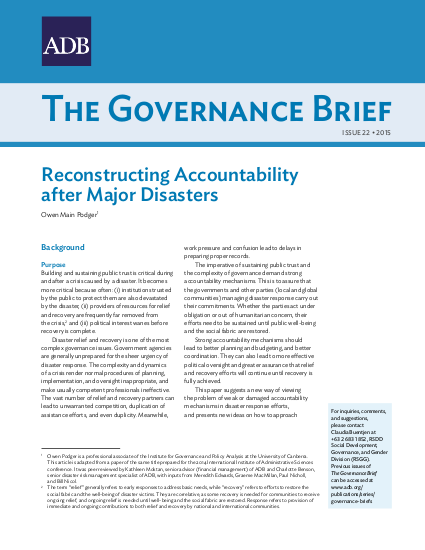
The imperative of sustaining public trust, and the complexity of governance demand strong accountability mechanisms to assure that the governments and other parties managing disaster response carry out their commitments.
Disaster relief and recovery is one of the most complex governance issues. Government agencies are generally unprepared for the sheer urgency of disaster response. The complexity and dynamics of a crisis render normal procedures of planning, implementation, and oversight inappropriate, and make usually competent professionals ineffective. The vast number of relief and recovery partners can lead to unwarranted competition, duplication of assistance efforts, and even duplicity.
This paper suggests a new way of viewing the problem of weak or damaged accountability mechanisms in disaster response efforts, and presents new ideas on how to approach development of accountability in each unique crisis situation.
This article was first published by the Asian Development Bank (www.adb.org).